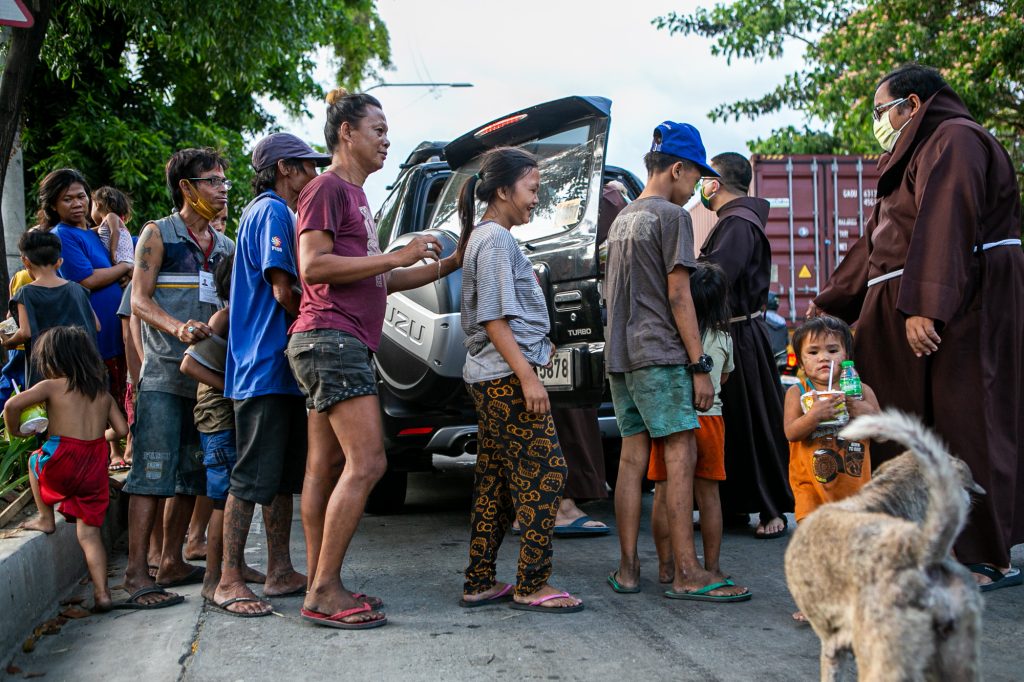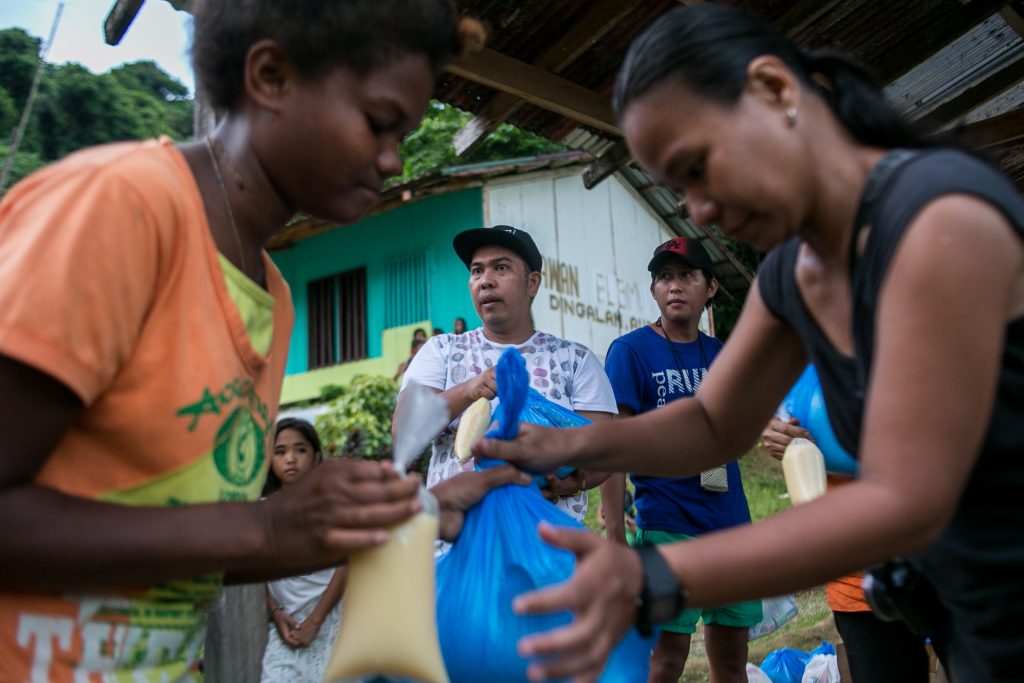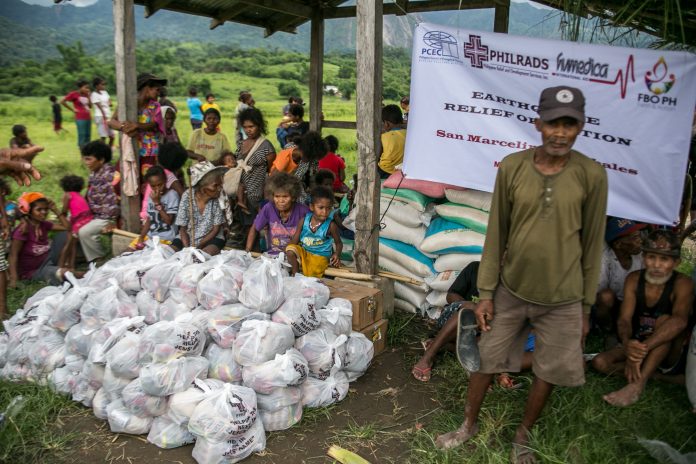THE coronavirus pandemic caught the social action arm of the Catholic Church in the Philippines “unprepared” for the health crisis.
“We were paralyzed for more than one month and had to just sit and wait because the condition was too unfamiliar,” said Jing Rey Henderson, communications officer of Caritas Philippines.
Henderson said the social action arm of the local church had to rely on diocesan social action centers in implementing “decentralized response” to the pandemic.
In March, the humanitarian agency issued guidelines for the implementation of its “Kindness Stations,” a project aimed to strengthen local communities as first responders.
The first stations were established in the Diocese of Sorsogon, allowing local benefactors to support families who were most affected by the pandemic.
“Not all dioceses were able to immediately cope up with the need to adapt to the so-called ‘new normal,’” said Father Edwin Gariguez, executive secretary of Caritas Philippines.
“Some were still waiting for aid coming from the national secretariat or donations from international charity organizations,” he said.
Father Gariguez, however, said local social action centers later realized that they have nothing to rely on but themselves and the local communities.
In March, towns and provinces across the country closed their borders after the national government imposed a strict lockdown to contain the spread of the virus.
As a result, aid providers and humanitarian organizations, including supplies and relief packs that mostly come from the capital region, did not reach the provinces.
Dioceses, especially in high-risk areas, mobilized local humanitarian actors and pulled their resources together to deliver aid to affected communities.
“The stay-at-home measure and the need to observe health protocols due to the pandemic taught us the importance of the localization of aid,” said Father Gariguez.

Church response
Despite the strict lockdown, Christian churches, through their local networks in dioceses and jurisdictions, were able to reach out to more than 4.5 million households.
The Philippine Faith-Based Organizations Forum or FBO PH reported that about US$30-million worth of financial and in-kind assistance were distributed as of June 18.
FBO PH is composed of the three largest Christian councils – the Catholic Bishops’ Conference of the Philippines, the National Council of Churches in the Philippines, and the Philippine Council of Evangelical Churches.
Bishop Noel Pantoja, head of the Philippine Relief and Development Services, said the development arm of PCEC continues to conduct humanitarian responses despite the difficult situation.
The Evangelical prelate said church workers and volunteers had to endure a great number of sacrifices “just to ensure that the church could continue in its mission.”
Minnie Anne Mata-Calub of NCCP said the government’s “restrictive instead of facilitative” quarantine guidelines affected humanitarian responses.
Calub said faith-based humanitarian organizations, however, “have been on the ground long before the pandemic, thus, systems and mechanisms of responses are well in place.”
“But instead of activating and supporting that existing system, the government opted to create new guidelines and protocols that resulted in confusion,” she said.
Calub said the government could have mobilized the humanitarian community and church institutions that have the network and the know-how in crisis response.
She said the problem can be rooted in “the country’s lack of recognition” of local non-government organizations, faith-based groups, and other community-based humanitarian actors.
Challenges in the coming days
The global pandemic brought in global but contextualized challenges, according to Calub. “It is taking a massive toll on the international economies and on resources too.”
While there is no way to tell the exact economic damage, experts agreed that the pandemic will have severe negative impacts on the global economy.
The pandemic worsened the already dwindling resources at the global level. The worsening economic situation will also affect how humanitarian responses are funded.
Caritas Philippines raises an average of US$1 million for its humanitarian response programs annually, majority of which comes from foreign donors.
Father Gariguez said the challenge now is the sustainability of resources and funds to keep relief and development programs to go on.
“The situation, however, gives an opportunity for the church to explore and expand the capacity of the local dioceses to respond to humanitarian crises,” the priest said.
“Now, more than ever, the church needs to advance localization of humanitarian aid and the empowerment of local communities as first responders,” he added.
Father Gariguez said there is “no way that the Church is going to stop” in its mission to deliver aid to disaster-affected and poverty-driven communities.
“The apostolate and the social works will continue but the Church has to go back to the basics and focus its resources on the most essential programs such as livelihood,” he said.
As for the Protestant council, Calub said “there is no substantial change in the way funding is directed or provided to frontline responders” in the Philippines.
She said most of the global funding for humanitarian crises are always channeled through international aid groups, alliances, and consortia, leaving local aid providers with limited resources.
“Local organizations have to pull together whatever resources they have, and they have to undertake local resource generation,” said Calub.
She said global appeals were already issued by different organizations. “There are openings for funding opportunities, but of course it will be a battle between and among the big organizations.”
The impact of this pandemic is global – but it is most especially local – the heaviest burdens are in the poorest, most vulnerable and heavily affected communities.

Structural change
Faith-based organizations in the Philippines have been advocating for “a more creative and innovative funding mechanism” that will allow local and national humanitarian actors to “directly access funds.”
Calub admitted that the current system “will not change unless institutional donors practice more flexible funding that would allow their international NGO partners to better support national actors.”
The present situation in the context of the pandemic is also demanding the humanitarian community, including faith-based organizations, “to strengthen collaboration and cooperation.”
“It demands the dissolution of boundaries and barriers and the openness of sharing of resources,” said Calub.
Church leaders agreed that it is inherent for the church to extend whatever resources to the people most in need of aid during calamities and crises.
Father Gariguez, however, said that there is also a need to “change the social perspective” that local communities have “no capacity to stand” at their own feet.
“We always see local communities as beneficiaries. Now is the time that we consider them as first responders and it calls on us to give them all the support,” he said.
Faith-based humanitarian groups stressed that “no amount of humanitarian aid will alter the deplorable condition of the people.”
For as long as the roots of people’s vulnerability are not addressed, they will remain to be the most vulnerable to the impacts of disasters or a global pandemic.









